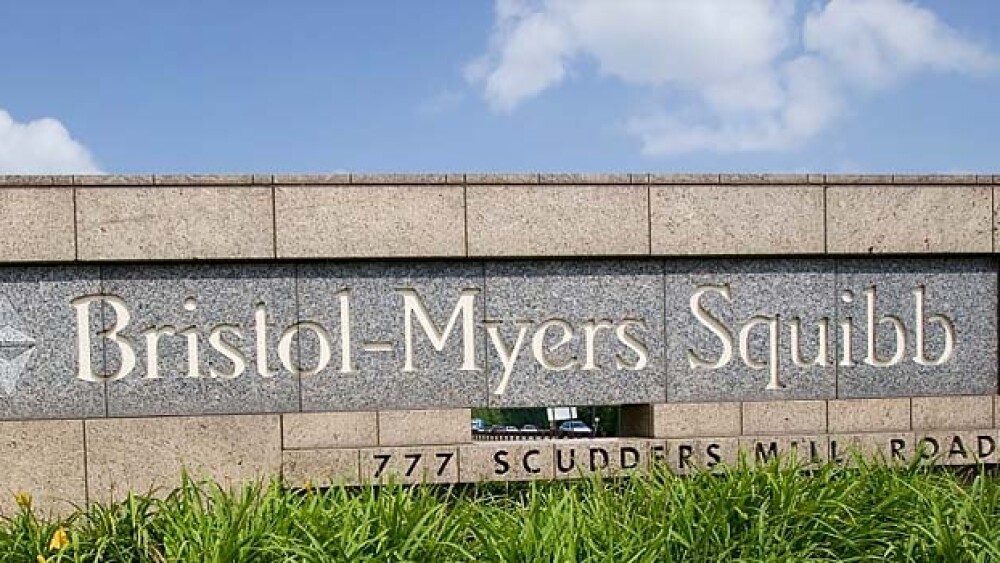In 2015, Bristol-Myers Squibb acquired Flexus Biosciences for about $1.25 billion, picking up F001287, Flexus’ IDO1 inhibitor in the bargain, as well as its IDO/TDO discovery program. Now, Bristol-Myers has dropped two Phase III clinical trials of the IDO1 inhibitor it acquired.
In 2015, Bristol-Myers Squibb acquired Flexus Biosciences for about $1.25 billion, picking up F001287, Flexus’ IDO1 inhibitor in the bargain, as well as its IDO/TDO discovery program. Now, Bristol-Myers has dropped two Phase III clinical trials of the IDO1 inhibitor it acquired.
It is potentially related to an announcement on April 6, that Incyte and Merck’s own IDO1 inhibitor epacadostat, which was being evaluated in combination with Merck’s Keytruda in unresectable or metastatic melanoma, failed in a Phase III trial. Based on the trial results, which also did not meet its second primary endpoint of overall survival—the first being improved progression-free survival of the overall population compared to patients on Keytruda alone—and the recommendation of an external Data Monitoring Committee (eDMC), the trial was abandoned.
Bristol-Myers Squibb was evaluating BMS-986205 and its checkpoint inhibitor Opdivo in patients with non-small cell lung cancer or head and neck cancer. FierceBiotech notes, that study “was just getting started when news of Incyte’s setback hit less than four weeks ago. The Incyte data triggered a rapid re-evaluation of the IDO field, causing first NewLink and now Bristol-Myers to reconsider their strategies.”
In fact, Bristol-Myers canceled its trial after recruiting only one patient. It originally planned to evaluate 1,750 patients in two clinical trials. The company says, “business objectives have changed,” in a statement as the rationale for ending the trials.
It’s also ended a Phase III trial of the combo therapeutic as a first-line treatment of patients with metastatic or unresectable melanoma, which was the same disease that Incyte and Merck were evaluating. Although the decision to shutter these trials kills any opportunity for the company to develop BMS-986205 and Opdivo any time soon, the company hasn’t completely abandoned the program.
“[Bristol-Myers] remains committed to continued research of BMS-987205-based combinations in an informed and scientifically robust manner,” a company spokesperson stated. “Insights from the evolving treatment landscape have brought to light the importance of better understanding the biological effects of the molecule, and identifying relevant biomarkers capable of selecting patient populations most likely to benefit from treatment. Therefore, it remains a priority to study BMS-986205-based combinations in the same and additional tumor types in early phase studies.”
The company continues to enroll patients in seven Phase I and Phase II trials of BMS-986205. Some of these involve the IDO1 inhibitor in combination with Opdivo and some in combination with Yervoy. Four trials with the drug will enroll 200 to 500 patients, and also include its LAG-3 compound relatlimab and some of its other oncology compounds.
Shortly after the Incyte failure, Derek Lowe, writing for his “In the Pipeline” blog for Science Translational Medicine, noted, “This is not only bad news for melanoma patients, for Merck, and (especially) for Incyte. And it’s not only potentially bad news for Bristol-Myers Squibb. It’s potentially bad news for everyone who thought that their understanding of these pathways was good enough to predict success for this trial. One of the biggest things going in immuno-oncology is the combination of the existing agents (PD pathway drugs) with other mechanisms to potentiate their effects and move them into new areas. This trial shows that we don’t know as much about how to do that as we thought we did. So, although the IDO-based trials are now very uncertain, this news throws uncertainty around the entire field, whether it goes through that mechanism or not.”





